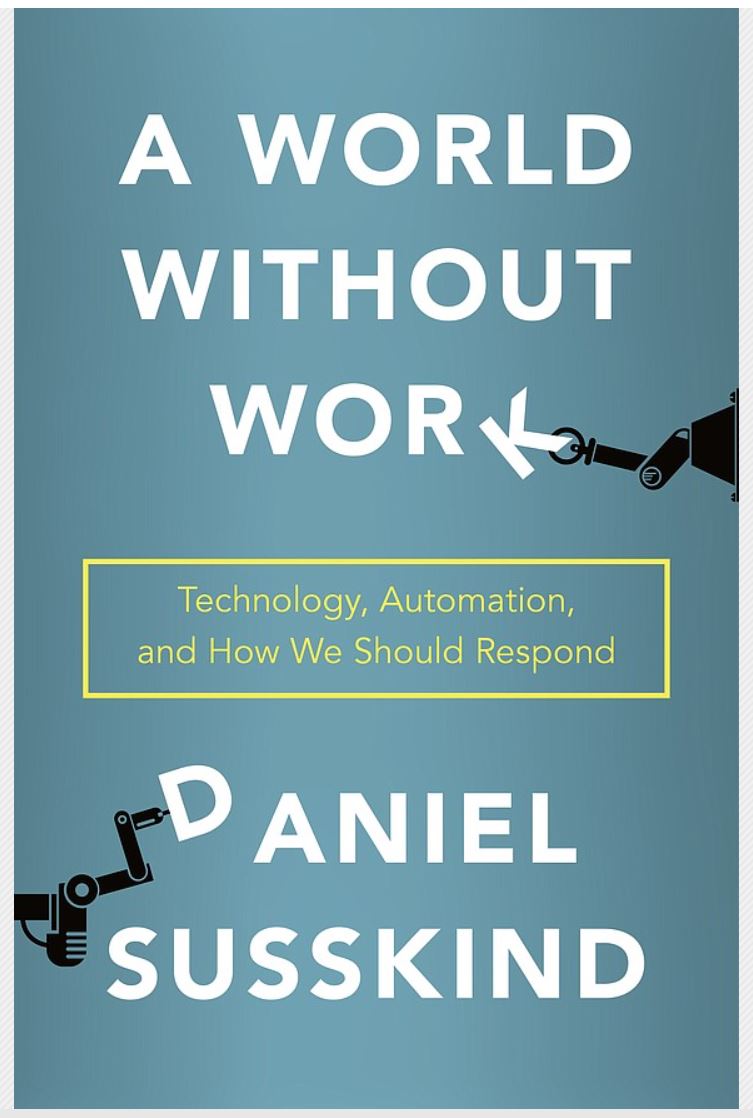In 1930, the economist John Maynard Keynes wrote a short essay called “Economic Possibilities for our Grandchildren,” where he envisioned technological advances enabling us to do all the work of agriculture, mining, and manufacturing with only a quarter of the human effort. Future generations, he said, would work only 15 hours a week. In fact, the challenge would be to share what work there was as widely as possible – or “to spread the bread thin on the butter” – because learning to live with purpose in a world without work would be hard.
Keynes’ prediction has not yet come to pass, if it ever will, but the idea of machines taking over human work has long held fascination and dread. So far, technology has created more work for humans, not less — new jobs and new opportunities, even if there were difficult dislocations for some. Still, the threat of technology robbing us of our livelihood has been with us a long time — at least since angry weavers destroyed the newly invented flying shuttle in the 1730s and mobs attacked the first factories with the spinning jenny in the early Industrial Revolution.
The Economist did a series of articles this past spring full of optimism for the world of work, including one titled “Robots threaten jobs less than fearmongers claim.” Doomsaying about machines, it said, has long been with us, but the labor apocalypse hasn’t happened and probably won’t. One reason is the “lump-of-labor fallacy” – the flawed idea that there is only a finite amount of work and that more automation necessarily means less work for humans. That has not been true. Instead, automation has made humans more productive by freeing them for new kinds of work.
A classic example is the bank ATM. While the number of ATMs quadrupled between the 1980s and 2010, bank tellers did not disappear. The number of tellers over that period actually rose because tellers were freed from dispensing cash and could offer face-to-face services that improved business.

Still, there is a credible case to be made for a world of much less work in the future, and it’s made very well in Daniel Susskind’s 2020 book A World Without Work. Susskind fully acknowledges that technological innovation creates new, previously unimaginable jobs. What people aren’t realizing, however, is that there is no reason to think humans will be better suited for these new jobs than machines. Machines are getting better and better, and we may be underestimating their capabilities.
Metropolitan Books, January 2020
Our traditional answer to automation has been to “upskill” – to retrain workers for higher-level work so that they can stay ahead of machines. The idea is to teach factory workers engineering skills, for example, and keep them moving up the ladder. But that’s a very 20th century idea that doesn’t acknowledge how good machines are getting. Being a lawyer or radiologist may be no safer than working on an assembly line.
Take the incredible progress artificial intelligence (AI) made between IBM’s Deep Blue beating chess champion Garry Kasparov in 1997 and Deepmind’s AlphaGo (now owned by Google) beating the world’s best Go player Lee Sedol in 2016. Go is a Chinese board game that is much more complex than chess. After just three moves by each player in Go, there are 230 million times more possible moves than in chess at the same point. Deep Blue learned to play chess through brute-force processing power so it could think ahead of Kasparov. But Go is too complicated for that. To learn to win against the best humans, AlphaGo first studied 30 million moves by top human players, then kept playing against itself. In 2017, the improved “AlphaGo Zero” didn’t even need to look at human play. It just learned the rules of the game, and in three days it generated enough of its own data to be able to completely destroy its predecessor AlphaGo.
Of course, we don’t know what the future holds. But it seems wise to start considering AI’s considerable and rising abilities to do high-level analysis, create art, and write music. Ironically, the jobs that stick in the future might be lower-paying ones that machines can do, but where human interaction still is valued – barbers, for example, or caregivers for seniors.
The implications of all this are enormous. For one thing, we will need a radical rethink of education. Really, why spend so much time teaching students to solve progressively harder math problems when they’ll never beat machines? And even more radically, we will need a totally new way to distribute wealth. Up to now, work and wages have been our primary means of distributing the economic pie. That is what “making a living” has meant. But how will we do things in a world without work, or at least much less of it?